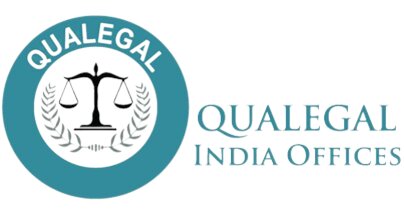Best Energy Regulatory Law Lawyers in New Delhi
Share your needs with us, get contacted by law firms.
Free. Takes 2 min.
List of the best lawyers in New Delhi, India
About Energy Regulatory Law in New Delhi, India
Energy Regulatory Law in New Delhi, India refers to the legal framework governing the generation, transmission, distribution, and consumption of energy within the city. The primary focus of this law is on electricity, renewable energy, and ensuring compliance with environmental standards. The field is heavily regulated to promote fair competition, consumer rights, and sustainable development. Various central and state laws, as well as regulatory bodies such as the Central Electricity Regulatory Commission (CERC) and the Delhi Electricity Regulatory Commission (DERC), oversee these aspects in New Delhi.
Why You May Need a Lawyer
There are several situations where legal assistance in Energy Regulatory Law becomes essential. Businesses and individuals may find themselves navigating complex licensing procedures, tariff disputes, issues related to power purchase agreements, and compliance challenges. Utility companies, renewable energy startups, and industrial consumers often require advice on regulatory filings, representation in court or before regulatory commissions, and resolution of consumer grievances. Additionally, with an evolving policy landscape focused on sustainability and clean energy, legal experts can help interpret new regulations, obtain necessary permits, and manage contractual obligations.
Local Laws Overview
Energy laws in New Delhi are governed by both central and state-level statutes. The Electricity Act, 2003 lays the foundation for generation, distribution, and trading of electricity across the country, including New Delhi. The Delhi Electricity Regulatory Commission (DERC), established under this Act, is responsible for regulating electricity within the city, determining tariffs, ensuring quality standards, and resolving disputes between stakeholders. Other key regulations include the National Tariff Policy, Renewable Purchase Obligation (RPO) requirements, and various safety and environmental compliance standards. For renewable energy, nodal agencies like the Solar Energy Corporation of India also play a significant role in policy implementation relevant to New Delhi residents and businesses.
Frequently Asked Questions
What is the role of the Delhi Electricity Regulatory Commission (DERC)?
DERC regulates the electricity market in New Delhi. Its responsibilities include setting tariffs for electricity supply, issuing licenses, ensuring compliance with standards, protecting consumer interests, and resolving disputes between various stakeholders.
How are electricity tariffs determined in New Delhi?
Electricity tariffs in New Delhi are determined by DERC through a transparent process based on factors such as cost of supply, operational efficiency, and input from consumers and other stakeholders.
What are Power Purchase Agreements (PPAs) and why are they important?
PPAs are contracts between power generators and buyers specifying terms of sale and purchase of electricity. They are crucial for securing revenue for energy projects and establishing obligations for both parties, often requiring legal review to protect interests.
Can consumers challenge electricity bills or disconnections?
Yes, consumers who dispute their electricity bills or face disconnection can file complaints with their service provider and subsequently approach DERC or consumer courts if the issue remains unresolved.
What legal compliance is required for setting up a new energy project in New Delhi?
New energy projects may require multiple approvals including environmental clearances, licenses from DERC, adherence to safety regulations, and compliance with renewable purchase obligations if applicable.
Are there incentives for renewable energy projects in New Delhi?
Yes, the Government of Delhi and central authorities offer incentives such as subsidies, tax exemptions, and preferential tariffs to promote solar and other renewable energy installations in the city.
What is Open Access in the context of electricity supply?
Open Access allows eligible consumers to purchase electricity directly from generators or traders rather than relying solely on the local utility, subject to certain regulatory permissions set by DERC.
How can disputes in the energy sector be resolved?
Disputes in the energy sector may be resolved through DERC, Appellate Tribunal for Electricity (APTEL), or relevant civil courts, depending on the nature and complexity of the case.
Are there specific safety and quality standards for energy companies in New Delhi?
Yes, energy companies must adhere to technical, safety, and quality standards specified by the Bureau of Indian Standards, Central Electricity Authority, and DERC regulations to ensure consumer protection and reliability of supply.
Can residential societies establish their own solar power plants?
Yes, residential societies in New Delhi are encouraged and allowed to set up solar power plants or rooftop installations. Compliance with DERC and local building guidelines is required, and legal advice is recommended to navigate regulatory processes.
Additional Resources
For those seeking further information or assistance in Energy Regulatory Law in New Delhi, the following resources may be valuable:
- Delhi Electricity Regulatory Commission (DERC)
- Central Electricity Regulatory Commission (CERC)
- Ministry of Power, Government of India
- Delhi Power Department
- Solar Energy Corporation of India
- Bureau of Energy Efficiency (BEE)
- Court and tribunal websites: Delhi High Court, Appellate Tribunal for Electricity (APTEL)
- Consumer forums and local legal aid clinics specializing in energy and infrastructure matters
Next Steps
If you require legal assistance in Energy Regulatory Law, begin by clearly identifying your issue, such as compliance, contractual matters, or disputes. Gather all relevant documents and correspondence. Consult a specialized lawyer with experience in energy regulation within New Delhi to assess your situation. Many law firms and legal professionals offer initial consultations to help you understand your rights and roadmap. If your concern involves a regulatory body like DERC, your lawyer can assist in preparing applications or representing you in hearings. Always confirm that your legal advisor has a strong track record in handling energy law matters within the jurisdiction of New Delhi for the most effective representation.
Lawzana helps you find the best lawyers and law firms in New Delhi through a curated and pre-screened list of qualified legal professionals. Our platform offers rankings and detailed profiles of attorneys and law firms, allowing you to compare based on practice areas, including Energy Regulatory Law, experience, and client feedback.
Each profile includes a description of the firm's areas of practice, client reviews, team members and partners, year of establishment, spoken languages, office locations, contact information, social media presence, and any published articles or resources. Most firms on our platform speak English and are experienced in both local and international legal matters.
Get a quote from top-rated law firms in New Delhi, India — quickly, securely, and without unnecessary hassle.
Disclaimer:
The information provided on this page is for general informational purposes only and does not constitute legal advice. While we strive to ensure the accuracy and relevance of the content, legal information may change over time, and interpretations of the law can vary. You should always consult with a qualified legal professional for advice specific to your situation.
We disclaim all liability for actions taken or not taken based on the content of this page. If you believe any information is incorrect or outdated, please contact us, and we will review and update it where appropriate.

















